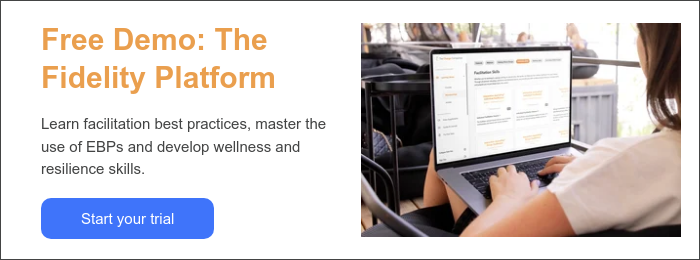December 2023 News Roundup

Every month, we’re bringing you the top news in addiction treatment and justice services from publications around the country.
Addiction Treatment | Justice Services | What We're Reading
Addiction Treatment
Headline
Muppets from Sesame Workshop help explain opioid addiction to young children
What
The article discusses how Sesame Workshop, the organization behind Sesame Street, is using Muppets to address the topic of opioid addiction with young children. The Muppets are part of a multimedia initiative called Sesame Street in Communities that aims to provide resources for families dealing with addiction. By incorporating characters like Karli, whose mother struggles with addiction, Sesame Workshop aims to foster understanding, empathy, and support for children affected by the opioid crisis.
Why this matters
More than 4% of children in the U.S. live with a parent who struggles with opioid addiction. This can be a source of confusion and trauma, so having resources that strengthen their emotional resilience and let them know it’s not their fault can help reduce some of the negative effects of their experience.
Headline
Biden-Harris Administration Calls on Housing Community to Help Expand Access to Life-Saving Opioid Overdose Reversal Medications Like Naloxone
What
The press release highlights the Biden-Harris administration's efforts to address the opioid crisis by calling for increased access to life-saving opioid overdose reversal medications such as naloxone. The administration emphasizes the importance of community-based solutions and housing support to expand access to these medications. The goal is to enhance public health efforts in preventing opioid-related overdoses and fatalities by ensuring wider availability of naloxone and related resources.
Naloxone is publicly available
The White House Office of National Drug Control Policy (ONDCP) Director and the Health and Human Services (HHS) Secretary recently conducted a live naloxone demonstration. The demonstration aimed to increase awareness and reduce stigma around naloxone as it becomes available over the counter for the first time, emphasizing the importance of widespread access to this life-saving medication in addressing opioid-related overdoses.
Read more | Learn how we support opioid abatement
Headline
Peer Recovery Support Webinars
What
In the coming months, the Association for Addiction Professionals (NAADAC) is offering a series of free, CEU-earning webinars on peer recovery including topics such as A Matter of Life and Death – Why the Discourse Around Twelve Step Recovery and Women Needs to Change and Practical Nutrition for Peer Coaching.
View NAADAC webinars | View our webinar recordings
Justice Services
Headline
Justice Department Announces Funding Opportunities to Support Public Safety in Tribal Communities
What
The article announces funding opportunities by the Justice Department to support public safety in tribal communities. These grants are intended to address substance use and improve overall public safety in Native American and Alaska Native communities. The funding aims to strengthen partnerships, promote community engagement and address the unique challenges faced by tribal nations in maintaining public safety.
Approaching Deadlines
In FY 2023, the department awarded 182 CTAS grants, amounting to more than $96 million in CTAS funding to 111 tribes and tribal consortia across the United States. The grants.gov application deadline for 2024 CTAS is March 5, 2024, at 8:59 p.m. ET, and the JustGrants deadline is March 12, 2024, at 8:59 p.m. ET.
Read more | Visit our grant support page
Headline
Justice Department Announces Release of Violent Crime Reduction Roadmap
What
The announcement discusses the release of a Violent Crime Reduction Roadmap by the Justice Department, outlining strategies to combat violent crime across the United States. The roadmap focuses on collaborative efforts involving federal, state, local and tribal partners to address the root causes of violence and implement evidence-based interventions. It emphasizes community engagement, prevention and enforcement as key components in the comprehensive approach to reducing violent crime nationwide.
10 essential actions
- Set a clear goal: commit to saving lives by stopping violence
- Identify the key people and places driving the violence
- Create a citywide plan for engaging key people and places
- Engage key people with empathy and accountability
- Address key locations using place-based policing and investment
- Place responsibility for violence reduction at the top
- Emphasize healing with trauma-informed approaches
- Invest in anti-violence workforce development
- Set aside funding for new stakeholders and strategies
- Commit to continuous improvement based on data, evidence, and peer-to-peer learning
Read more | Learn about our justice services solutions
Headline
A Call to Action: Global Momentum on Access to Justice Drives Progress in the United States
What
The article discusses a global call to action for increasing access to justice and highlights the progress made in the United States. It emphasizes the importance of removing barriers to justice and ensuring that legal systems are accessible to all individuals. The article specifically outlines efforts and initiatives in the U.S. aimed at advancing access to justice and addressing disparities within the legal system.
Framing the urgency
“Just last month, the World Justice Project released its annual ranking of countries on their compliance with various measures of the rule of law, including the accessibility and affordability of civil justice. Of 142 countries, the United States is 115th. Among the 46 wealthiest countries, the United States ranks 46th — let that sink in: we rank last on accessibility and affordability of civil justice. This means a lack of access to basic civil legal needs involving issues like housing and evictions, employment, or public benefits,” said U.S. Associate Attorney General Vanita Gupta.
What We're Reading
B.F.F.: A Memoir of Friendship Lost and Found by Christie Tate
“In close parallel to her debut, Group, Tate's second memoir is another long look at a lifetime's work of healing relationships . . . Written in three understandable, relatable parts—"What It Was Like," "What Happened," "What It's Like Now"—Tate's book shows readers how deep the work had to go for her to change.” — Booklist
After more than a decade of dead-end dates and dysfunctional relationships, Christie Tate has reclaimed her voice and settled down. Her days of agonizing in group therapy over guys who won’t commit are over, the grueling emotional work required to attach to another person tucked neatly into the past.
Or so she thought. Weeks after giddily sharing stories of her new boyfriend at Saturday morning recovery meetings, Christie receives a gift from a friend. Meredith, twenty years older and always impeccably accessorized, gives Christie a box of holiday-themed scarves as well as a gentle suggestion: maybe now is the perfect time to examine why friendships give her trouble.



